#kidney Transplant
Explore tagged Tumblr posts
Text
#tiktok#organ donor#kidney failure treatment without dialysis#kidney disease#kidney transplant#organ donation#kidney donation#fuck trump#donald trump#us politics#trump#president trump#trump administration#us government#fuck ice#immigration law#immigration#immigrants#immigration and customs enforcement#legal immigrants#legal immigration#mass deportations#trump's deportation#trump's america
104 notes
·
View notes
Text
"For the first time, genetically modified pig kidneys provided “life-sustaining kidney function” during the course of a planned seven-day clinical study—a first step in addressing the critical crisis worldwide of kidney donor organ shortage.
The University of Alabama’s pre-clinical human study at Birmingham also advances the science and promise of xenotransplantation as a therapy to potentially cure end-stage kidney disease—just as a human-to-human transplants can.
“It has been truly extraordinary to see the first-ever preclinical demonstration that appropriately modified pig kidneys can provide normal, life-sustaining kidney function in a human safely and be achieved using a standard immunosuppression regimen,” said UAB transplant surgeon scientist Jayme Locke, M.D., director of UAB’s Comprehensive Transplant Institute and lead author of the paper...
The peer-reviewed findings published last month in JAMA Surgery describes the pioneering pre-clinical human research performed on a recipient experiencing brain death...
The pre-clinical human brain death model developed at UAB can evaluate the safety and feasibility of pig-to-human kidney xenografts, or transplants, without risk to a living human. It is named for transplant pioneer Jim Parsons, an organ donor whose family generously donated his body to advance xenotransplant kidney research, like the latest patient did.
A Critical Need
Kidney disease kills more people each year than breast or prostate cancer, while more than 90,000 people are on the transplant waiting list. More than 800,000 Americans are living with kidney failure and 240 Americans on dialysis die every day. The wait for a deceased donor kidney can be as long as five to 10 years, and almost 5,000 people per year die waiting for a kidney transplant.
Groundbreaking Study Details
The 52-year-old study subject for this research lived with hypertension and stage 2 chronic kidney disease, which affects more than one in seven U.S. adults, or an estimated 37 million Americans. As part of this study, the subject had both of his native kidneys removed and dialysis stopped, followed by a crossmatch-compatible xenotransplant with two 10 gene-edited pig kidneys, or UKidney.
The transplanted pig kidneys made urine within four minutes of re-perfusion and produced more than 37 liters of urine in the first 24 hours. The pig kidneys continued to function as they would in a living human for the entirety of the seven-day study. Also, the kidneys were still viable at the time the study was concluded.
“In the first 24 hours these kidneys made over 37 liters of urine,” said Dr. Locke. “It was really a remarkable thing to see.” ...
Gene editing in pigs to reduce immune rejection has made organ transplants from pigs to humans possible. The natural lifespan of a pig is 30 years, they are easily bred, and they have organs of similar size to humans. Genetically modified pig kidneys have been extensively tested in non-human primates, and the addition of UAB’s preclinical human research model—the Parsons Model—now provides important information about the safety and efficacy of kidneys in human transplant recipients."
-via Good News Network, September 17, 2023
#organ donation#organ donor#organ transplant#medical news#medical research#pigs#kidney transplant#kidney diseases#dialysis#good news#hope#hope posting#human biology
575 notes
·
View notes
Text
So, kidney transplants generally last around 15 to 20 years if the recipient receives the transplant from a living donor. Hwang Junho received a kidney from his older brother, Hwang Inho.
I’m contemplating the ending for the Hwang brothers.
If we assume Junho got the transplant in his early 20s, he could likely outlive that kidney and need a second one by his late 30s or early 40s. If he was younger at the time of the transplant—say, between 13 and 19 years old—he might outlive the first kidney and require a second by his early to late 30s (around 33 to 39 years old).
He has fewer years to live.
Remember that Inho played Squid Game when he was 39 years old in 2015? Tragically, Junho will need another transplant when he turns 39 to stay alive.
Where would he find the money for the transplant? Would he consider playing in the Squid Game? This would mirror Inho’s experience when he first participated in the game.
Or could he become the next Frontman?
This scenario would be filled with heavy angst. Inho, knowing his younger brother needs another kidney transplant to survive, might ask Junho to take his kidney when Inho is near death. Inho believes he has no right to redemption and requests to sacrifice himself for his brother’s sake.
In the end, Junho could become the next Frontman. He would be unable to live normally knowing that his survival is due to his brother's sacrifice; it was Inho's request, but it would still feel like he killed him. He wears Inho's Frontman suit, which still carries his scent, reminding him of the comfort Inho provided.
For the next transplant, about 15 years later, Junho might resort to using kidneys from deceased players for another surgery. This would lead him into a darker side of himself, darker than Inho had been, haunted by the memory of his brother's death at his hands.
Alternatively, he might choose not to get another kidney transplant 15 years later and consider ending his own life instead.
As a huge fan of the Hwang brothers, I believe many agree that Inho will die in Season 3. However, it remains uncertain whether Junho will survive.
Many fans sincerely hope that Junho will find happiness after the traumatic experiences he endured during the Squid Game and the loss of his beloved brother, who raised him and selflessly donated one of his kidneys to extend his life. However..... Can he truly live a normal life knowing about this sacrifice? Don’t you think this burden will haunt him forever? It’s important to remember that he still needs another kidney transplant to survive.
And some fans are okay with Junho dying in Season 3.
Personally, I believe Junho will die in the final season, but I hope he dies alongside Inho—rather than dying recklessly or before reuniting with Inho.
Realistically, there may not be a happy ending for the Hwang brothers. The closest to a happy ending we might see is if both Inho and Junho die together.
🔴🔺️🟥
#hwang brothers#hwang inho#hwang junho#squid game#hwang jun ho#hwang in ho#hwang bros#squid game 2#hwang siblings#squid game netflix#hwang in-ho#hwang jun-ho#the frontman#the front man#kidney transplant#tragic siblings#wi ha jun#wi ha joon#leebyunghun#lee byung hun
47 notes
·
View notes
Note
Hi
Hope you are doing well 🇵🇸
Can you help me and share this link:
8 years old child, Yusuf have a kidney failure
I think he's story need your support
You can see in GFM campaign
https://gofund.me/97f9023b
Thank you so very much for your supporting us and for your contribution to saving us and getting us to safety and evacuating from Gaza.
thank you for reaching out! i will also add this to my masterlist and pray for yusuf's safety and recovery.
yusuf really very dearly needs medical care that is not possible with the limited resources in gaza, all while his and his family's lives are at risk from the violence being visited by the israeli occupation. aside from the evacuation cost, they also need money to afford a kidney transplant for yusuf. this is so important so that yusuf can have the future he deserves, where he survives kidney failure and is reunited and can play again with his siblings who miss and are afraid for him. please share and donate if you can!
#dp#gaza#gaza strip#kidney transplant#kidney patient#free gaza#free palestine#palestine#EndIsraelsGenocide
37 notes
·
View notes
Text
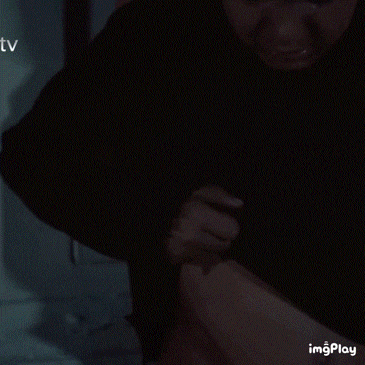






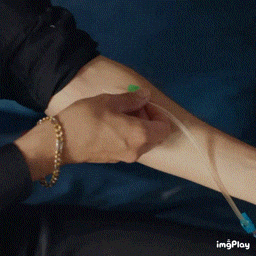









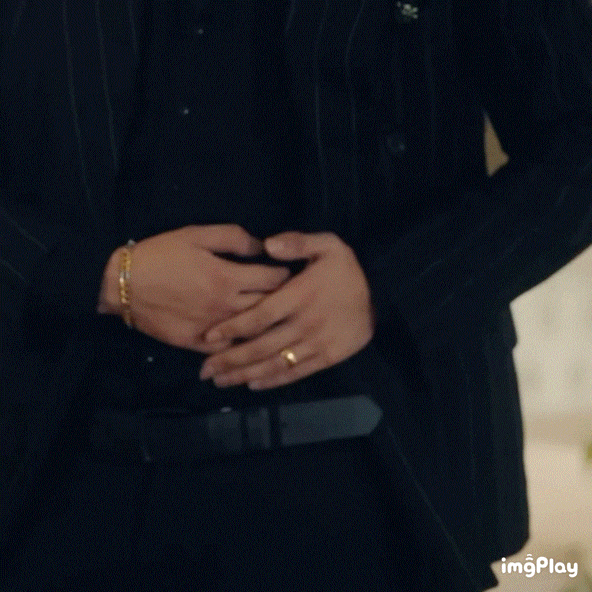

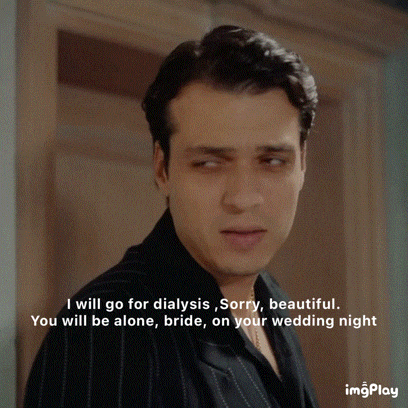

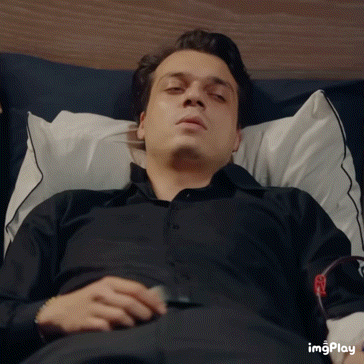
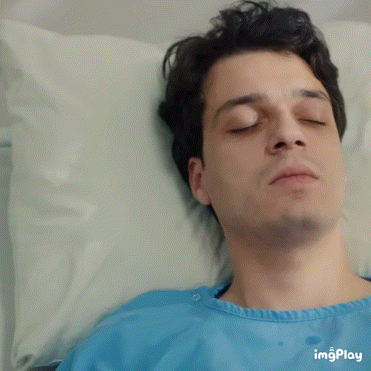

ateş kuşları From episode 22 to 27
This feisty character is Kara. He will make you laugh sometimes and sad sometimes because of his story. His brothers left him for organ dealers when he was young. They stole his kidney and tortured him until his other kidney failed. He returns to take revenge on his brothers because they abandoned him, but he lives his last days refusing to accept any kidney transplant, but in the end he collapses and wakes up to discover that his older brother has donated his kidney to him, but he is angry because it was done without his permission. But it was his wife who allowed it.
#whump#turkish series#worry#painful#wound#collapse#kidney failure#kidney transplant#kidney#surgery#turkish dizis#ateş kuşları
113 notes
·
View notes
Text
Artificial kidneys for people with kidney failure may be closer than we think
More than 500k people in the US require dialysis every week due to kidney failure. Some of those people are able to receive organ transplants, but the waiting list is incredibly long and only about 20k people receive transplants every year. On top of that, a person's body can reject the transplanted organ, and even if it is successful the patient will have to take immunosuppressant drugs for the rest of their life.
However, scientists at the University of California San Francisco hope that can be changed. They have created a bioreactor, a sort of artificial organ that can safely perform the functions of a kidney. It is connected directly to the blood vessels and veins, allowing passage of nutrients and oxygen like the actual kidney would. This bioreactor was tested using a type of kidney cell called a proximal tubule cell, which regulates water. These cells are encased in a silicon membrane with nanopores, which allows the cells to do their job while preventing the body's immune system from identifying and attacking them. These bioreactors were tested in pigs, and after a week the animals experienced no ill effects or rejection.
The next steps will be expanding to month long trials, and including more different kinds of cells in the reactor to perform more of the kidney's functions. Though this technology is still far from being perfected, this is a huge step in the direction of treating kidney disease far more easily and effectively!
#science#stem#science side of tumblr#stemblr#biology#biochemistry#studyblr#medicine#health#healthcare#kidney transplant#kidney diseases
76 notes
·
View notes
Text

Stopping Cystic Cells
More than half the patients with the inherited kidney disease ADPKD will need a kidney transplant. This study shows that the abnormal, cystic cells can be prevented from accumulating by inhibiting clustering of their centrosomes, cell machinery required for division – a potential novel treatment target
Read the published research article here
Image adapted from work by Tao Cheng and colleagues
Department of Medicine, Nephrology Division, Washington University School of Medicine, St. Louis, MO, USA
Image originally published with a Creative Commons Attribution 4.0 International (CC BY 4.0)
Published in Journal of Clinical Investigation insight, May 2024
You can also follow BPoD on Instagram, Twitter and Facebook
#science#biomedicine#immunofluorescence#biology#centrosomes#cell division#kidney disease#kidney transplant#chromosomes
16 notes
·
View notes
Text
I don't normally post personal stuff on here, but I'm a dialysis patient and have been waiting for a Transplant for 5 years now and tonight I got the call for a kidney and have to be at the hospital by midnight. So any positive vibes and thoughts and prayers you guys could send me I'd really appreciate it.

#bang chan#skz stay#stray kids#lee know#changbin#hyunjin#han jisung#lee felix#seungmin#jeongin#kidney disease#kidney transplant
28 notes
·
View notes
Note
which kidney do you think inho donated. left or right
I actually never thought about that!
Did I go into a research rabbit hole? Yes, yes I did.
Apparently the left kidney is often preferred for living donors because it has a longer renal vein, which can be easier to connect to the recipient's iliac vein.
And cause I had no idea what the hell a "renal vein" or "iliac vein" is, I also looked that up!
Renal vein: carries blood away from the kidney and back to the heart
Iliac vein: carries blood from the legs and lower body up toward the heart
So during a kidney transplant, the donor’s renal vein is connected to the recipient’s iliac vein so that blood can flow out of the new kidney properly! Very interesting!
So technically, In-ho would have donated the left kidney!!
#squid game#hwang brothers#hwang inho#kidney transplant#anon asks#thank you anon#- sofia rambles#unprofessional medical stuff explanations
2 notes
·
View notes
Text
Problems with God

I get to hear a lot of people’s problems with God.
Things they don’t understand. Things they object to. Things they have against God.
As someone with a collar and a title, it means a lot to me that people trust me enough to tell me their problems with God.
Because for a lot of people, the roots of their problems with God go back to someone with a collar and a title. So telling me about it? That takes some courage.
One of the biggest problems that people have with God? It’s one that I know well. Because I still struggle with it sometimes – having to understand something in order for it to be true.
It’s a subtle way that pride smuggles itself into our thoughts. It’s subtle, because almost nobody says it that way. In practice, it sounds much more sensible, because it goes something like this,
How can bread and wine be the Body and Blood of Christ? I’ve seen it before Mass and after the consecration – there’s no visible difference. It still looks like bread and wine.
Translation – I don’t understand it, therefore it isn’t true.
This approach isn’tt limited to problems with the Eucharist. But no matter what it’s applied to, when you boil that statement down to its essence, it doesn’t work. Because it’s nonsense. Here’s what I mean,
A friend of mine donated one of his kidneys to his daughter.
I don’t understand how organ transplants work.
According to the standard of “I don’t understand it, therefore it isn’t true,” the operation must have been a failure.
And yet – notwithstanding my complete lack of understanding – the transplant was a success. Fifteen years (and a grandchild) later, both my friend and his daughter are fine.
Which tells me what? That however much I think I know, I do not possess the sum total of human knowledge. Which means that there are things that are completely true that I do not understand.
The fact that knowledge continues to grow and new discoveries are made shows us that this is a universal experience. Also, that there are things that no human being understands. And that our collective lack of understanding has no impact on their truth.
The antidote to all of this, to the vanity and closemindedness that comes with “I don’t understand it, therefore it isn’t true?” We see it in today’s Gospel. In Mary’s lived example of humility.
Instead of having to have it all figured out, instead of demanding to know exactly how it’s all going to work. Mary lives in peace. How?
By not trusting to her own understanding. By not insisting that she is the standard by which everything is to be measured.
Instead, Mary waits on God for the next step. Trusting that the Creator of the universe can handle things just fine. Even if she doesn’t completely understand how.
Mary does that (as today’s Gospel shows us) even in the darkest moments of her life. Showing you and me the source of her peace.
Showing us how to have peace in the middle of life’s very worst.
Today’s Readings
#Problems with God#Mary#Trust#Trust God#Understand#Eucharist#Peace#God#Jesus#Catholic#Christian#Church#Moments Before Mass#Kidney Transplant
15 notes
·
View notes
Text
Reality check: You may not be eligible for an organ transplant. You don't get one just because one of yours is failing. Don't bank on that as a back-up.
Even if you are eligible, it is not a cure. It's a temporary extension at best. Do your research. Take care of what you can. Don't get to that point if you can help it.
#spoonie#t1d#t1diabetes#type 1 diabetes#invisible illness#diabetes#kidney#pancreas#kidney transplant#transplant#pancreas transplant#organ transplant#rheumatoid arthritis#anemia
3 notes
·
View notes
Text
Okay, I need to talk about this.
I actually can't connect the dots. In my mind, it still doesn't make sense that Inho played Squid Game because of his wife's surgery. It will make sense if Junho didn't experience kidney failure and didn't need a kidney transplant.
But Junho actually had a kidney transplant. Which it is clear he had it before Inho's wife got sick. The question is, how did Inho get the money for Junho's transplant?
When I watched S1, I thought Inho went to play SG in 2015 because he needed money for Junho's transplant. I was confused when S2 suddenly told us that Inho went to play SG because his wife got sick.
It's like they forgot the real plot in S1.
At first, I always thought that Junho had kidney failure when he was on a mission and had an accident that made him undergo a kidney transplant. If that happened, the plot where Inho's wife needed a heart transplant and Inho joined SG for her surgery would make sense.
Why? Because Junho's kidney transplant would be paid by the Police Government Insurance. Because he got into an accident WHILE he was on an active mission from the Police Government.
But someone reminded me that Junho was still at the university when Inho played SG in 2015. So, that thoughts vanished instantly.
To be honest, I was surprised when S2 told us that Inho had a wife and he played SG because of her. Because for me, personally, it didn't make sense with the plot in S1. And then in Inho's file in S1, they DIDN'T STATE that Inho was married either. I guess the director and the scriptwriter totally forgot about this little detail.
It doesn't make sense to me that Inho could afford Junho's kidney transplant. The Hwang family didn't seem to come from a rich family. Kidney transplant was so expensive. Where did he get the money?
If Junho was still in the university when Inho's wife got sick..
When did Junho get a kidney transplant? It must be before Inho's wife got sick because from the conversation between Junho and his mother described that Inho couldn't sell one of his kidneys to pay for his wife's surgery because he had already given one to Junho.
And again, the question is HOW DID INHO PAY FOR JUNHO'S KIDNEY TRANSPLANT? 😭😭😭
If there were no wife at all, it makes sense that Inho played SG to pay for Junho's surgery. Here is what I think :
Junho was sick and had kidney failure. He needed a kidney transplant as soon as possible. Inho had been tested, and he was a match for Junho's kidney. And then, he was thinking of giving his kidney to Junho, but he was confused about the bills. The bills were very expensive. And he had to get the money to help Junho. He was depressed, and then he was offered to play SG. So he played with his heart out, thinking he had to win to keep Junho alive.
He won.
He rushed to the hospital and told the doctor to remove one of his kidneys and plant it in Junho's body. The surgery succeeds. And he paid all the bills with the money he had won in SG.
(Why didn't I say that Inho gave his kidney first and then played SG to pay the hospital bills?? IT WAS IMPOSSIBLE TO DO THAT. Because the donor had to have medication after donating their kidney to others. So Inho would have to rest too, at least a week to two weeks in the hospital. And he couldn't do too many physical activities either because he had just gotten surgery, which was impossible. After all, in SG there were so many games that using physical activities).
OR
If Inho could pay for Junho's transplant, the Hwang family might have come from a not-rich family, but they weren't poor either, and then they fell into poverty because of Junho's transplant. Inho used all the family's savings and sold everything they had before to pay for Junho's transplant. Inho succeeded in paying for Junho's transplant, and Junho was saved. And then, a few years later, when Inho got married, his wife got sick, he didn't have any money for her surgery because he had already used all of his and the family's money for Junho, and their family had already fallen into poverty. That's why he had no choice but to go to play SG to get the money for his wife.
I think that's the closest backstory that made sense for the plot.
Notes: I know there is a thing called insurance. I have talked about that too in one of my posts before. And I still think the plot in S2 doesn't make sense. At least for me. I hope they will give the Hwang brothers' backstory in S3, so at least we know what really happened between them before Inho became the Frontman.
#hwang brothers#squid game#hwang inho#hwang junho#hwang in ho#hwang jun ho#hwang bros#squid game 2#the frontman#the front man#netflix series#netflix shows#kidney transplant#jun ho squid game#in ho squid game#in ho#jun ho#wi ha joon#wi ha jun#leebyunghun#lee byung hun#opinion#hwang siblings#inho#junho#rambles#ramblings#hwang family
28 notes
·
View notes
Text
Yours Truly by Abby Jimenez - A Review

Mild spoilers, but nothing major.
I do enjoy a good romance, but it is not something I seek out. Generally, I like when there's something that seems really different - some job that I haven't seen represented in romance novels before, some activity, crazy stuff, whatever.
This book caught my attention when someone mentioned kidney donation was a major part of the book. Having donated a kidney to someone in need, I though, huh, that's new, wonder what's up?
I got through the plot feeling really satisfied - everything donor-specific felt pretty representative of what I had been through as a donor. I was nervous the donation surgery would be scary or have complications - nope! Won't get into too many details, but just like in real life, kidney donation has a low chance of complications, and donors and non-donors have the same average lifespan, so it was just one quality of the story, not necessarily a major source of drama in itself.
Then I got to the very end of the text, when Abby Jimenez mentioned her journey with kidney health and I nearly cried.
I already chose to donate to help someone in need, and seeing that Abby wrote from experience, really helping showcase how meaningful it is to give the gift of better health when one can - it was just so dang lovely.
Not to focus on just the one issue - the rest of the book is also good! The main pair feel lived in, thoughtful in their emotions, and really care about how the other is doing. Maybe the relationship drama went out for a little too long for my tastes, but the thing that made this book special was just such a well-thought out addition and it came from such a good place.
The book has some trigger warnings for pregnancy loss - I suggest anyone interested read the triggers first, but from my perspective, I was very pleased with how things were handled.
Give this book a whirl, and consider kidney donation if you are in a place in your health and life journey to help someone else!
#yours truly#abby jimenez#romance#book reccs#book review#book recommendations#booklr#kidney donation#kidney donor#kidney transplant
9 notes
·
View notes
Text
It's National Kidney Month! Did you know:
Over 80,000 people in the USA alone need kidney transplants.
The average wait time for a kidney transplant is five years on dialysis.
Kidney donors actually have a lower risk of kidney disease, and a higher life expectancy, than the general population.
Donating a kidney can extend the recipient's life by 20-40 years!
Kidney donation is actually one of the "easier" surgeries, with most people only spending one night at the hospital.
In most countries it costs no money to donate a kidney, and in the USA you can get compensation for lost wages while recovering from surgery.
You don't need to know someone who needs a kidney before you donate one. In fact, these "non-directed donors" often enable the transplant waitlist to create donation chains, in which multiple people receive kidneys!
Registering as an organ donor means you could even donate an organ after you die, without needing to do anything while you're alive.
If you want to learn more, check out the National Kidney Registry, or you can read about my personal experience on this blog. Or, if kidney donation isn't right for you, there are other ways you can help folks with kidney disease!
13 notes
·
View notes
Text
youtube
#youtube#redlettermedia#red letter media#rich evans#jay bauman#gorilla interrupted#half in the bag#mike stoklasa#best of the worst#jack packard#jack quaid#kidney#kidneys#kidney transplant#transplant#dialysis#horror#horror films#horrors#horror film#film#films#film review#films reviews#movie#movies#movie review#horror movie#horror movies#2024
4 notes
·
View notes